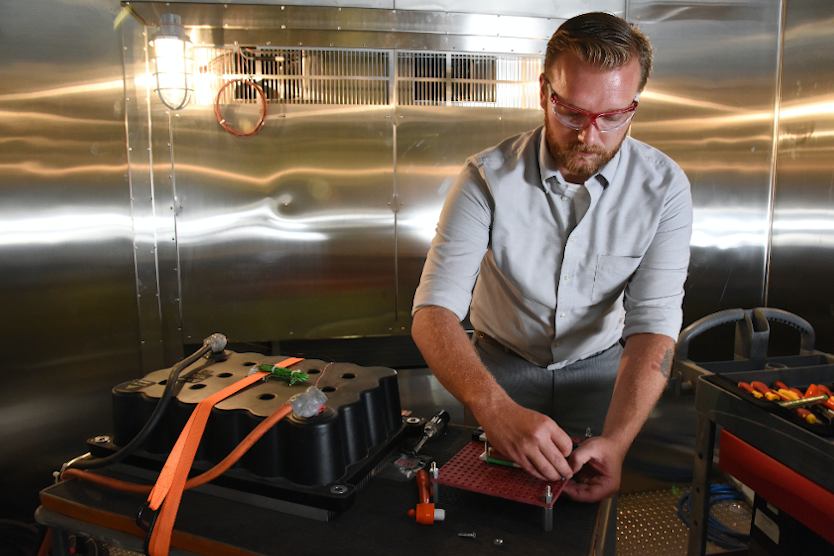
The Fraunhofer Institute for Energy Economics and Energy Systems (IEE) will lay the groundwork for the development of future hybrid storage systems.
© Unsplash
Supercapacitators (or “supercaps”) play a vital role in energy storage by taking over from lithium-ion batteries during peak loads, thereby relieving the stress on the storage system and extending service life. The SuKoBa ("Supercapacitors for lifetime optimisation of battery hybrid storage systems - design methods and control algorithms") project, initiated by the Fraunhofer Institute for Energy Economics and Energy Systems (IEE), will lay the groundwork for the development of future hybrid storage systems.
"Hybrid storage combines the advantages of batteries with those of supercapacitors – and at the same time eliminates their respective disadvantages. We expect a significant increase in the service life of such hybrid storage systems…this can lead to significantly lower system costs," explains Matthias Puchta from the Hardware-in-the-Loop Systems unit at IEE in a press release.
But there are still big gaps in our knowledge of how hybrid systems will work – from optimal size and design features, through to service life, management and control and overall cost – and tools must be developed to close these gaps. "With SuKoBa we are creating the prerequisites to comprehensively utilise the potential of hybrid storage technologies," says Puchta. "Our research project is making a significant contribution to making battery storage economically viable even in places where very high performance is required for short periods of time."
Together with its project partners, which include Skeleton Technologies GmbH and AVL Germany, IEE will create a modular management system with adjustable parameters for adapting to specific applications and settings (including electromobility) that organises different components and monitors the overall system.
SuKoBa is funded by The Federal Ministry for Economic Affairs and Energy until the end of 2023.


